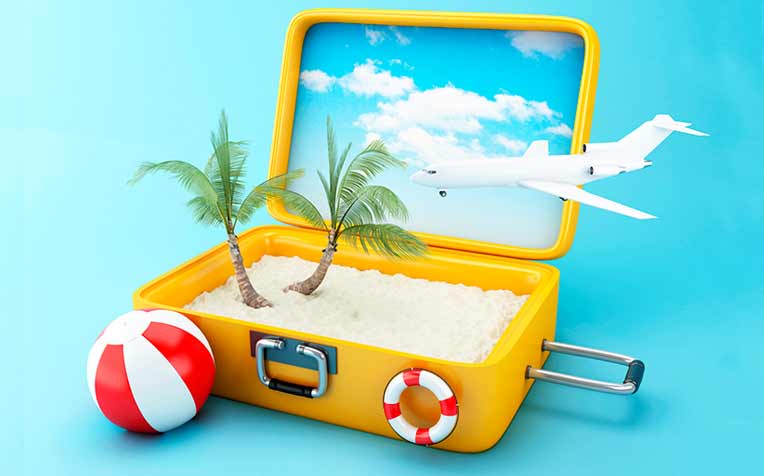
Caption: With December just round the corner, it's a popular time for families and couples to go overseas on vacation. But just as you're busy making bookings and shortlisting items you need for your trip, are you sparing enough thought to prepare health-wise? The Travel Clinic at Singapore General Hospital (SGH) shares five things you should do for your health before travelling. (iStock photo)
Planning a safe trip is more than just about ensuring that all your bookings are in order, that you have shortlisted/packed everything you need for your trip and purchased travel insurance. It is also about being well prepared, health-wise.
This was advice shared by
The Travel Clinic at
Singapore General Hospital (SGH), a member of the
SingHealth group.
5 Things you should do before you travel
1. Look up health information that applies to your destination
Do some research on the destination that you are travelling to. On websites like
Centers for Disease Control and Prevention (CDC) and
World Health Organisation (WHO), you can find out what diseases you might be at risk for (like malaria in Peru, yellow fever in Sub-Saharan Africa), vaccine recommendations and what medicines you should pack.
2. Schedule an appointment with a doctor prior to travelling
The best vaccination advice will come from your doctor. It is ideal to schedule an appointment four to six weeks before you leave.
Dr Limin Wijaya, Senior Consultant,
Department of Infectious Diseases, SGH, explains, "A proper medical consultation will reveal the type of vaccinations you need based on your health conditions, past vaccinations and holiday destination."
Plan in advance as some vaccinations require doses spread over a few weeks and take time to become effective. But if it's a last-minute trip, it is still possible to head down to the doctor's clinic and try to minimise your health risks.
Related article:
This illness affects up to 60% of travellers and how to prevent it!
3. Clear your medical doubts
At the clinic, check your health concerns with your doctor. If you are unsure whether you can continue with vaccinations since you are pregnant, already feeling ill or are on antibiotics, ask your doctor.
"Generally, it is okay to undergo certain vaccinations even if you are pregnant, suffering from mild colds or on antibiotics," says Dr Wijaya. "However, those with a high fever of over 38 degrees Celsius should delay the vaccinations." Live vaccines cannot be given to pregnant woman and those who are immunocompromised.
Related article:
Vaccines and vaccination – Learn to separate facts from myths
4. Decide on the type of vaccination you need – and get it!
After the consultation, decide what type of vaccinations you need. Sometimes, you may not even need the jabs.
Always keep a record of your vaccinations. In some cases, you may need to show proof of vaccination at your destination country. For instance, yellow fever vaccination is a must for travel to sub-Saharan Africa and South America.
Related article:
Common vaccines you may need before you travel
5. Have post-travel health concerns? Don't take chances, see your doctor!
If you think you have brought home something more than just beautiful memories, it is time to make a trip to the doctor.
Dr Wijaya says, "This is especially crucial if you're experiencing a fever and have travelled in a malaria zone, or if you've been scratched or bitten by an animal. If you're feeling unwell, seek medical attention immediately."
--
Articles on
HealthXchange.sg are meant for informational purposes only and cannot replace professional surgical, medical or health advice, examination, diagnosis or treatment.